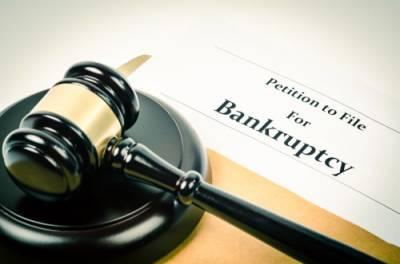Will I Be Required to Turn Over Property if I File for Bankruptcy?
 If you have significant debts, you may be considering your options for receiving debt relief through bankruptcy. However, you may also be concerned that if you file for bankruptcy, you may be forced to surrender certain property that you own. By understanding the effects of different types of bankruptcy and how bankruptcy laws apply to the property you own, you can make the best decisions that will allow you to regain financial security.
If you have significant debts, you may be considering your options for receiving debt relief through bankruptcy. However, you may also be concerned that if you file for bankruptcy, you may be forced to surrender certain property that you own. By understanding the effects of different types of bankruptcy and how bankruptcy laws apply to the property you own, you can make the best decisions that will allow you to regain financial security.
Property Ownership in Chapter 7 Bankruptcy
In many cases, debtors will choose to pursue a Chapter 7 bankruptcy, since this will allow them to eliminate all of their unsecured debts. However, this type of bankruptcy may require a person to turn over certain items they own so that this property can be liquidated and some of the debts they owe can be repaid. Fortunately, some exemptions apply to the property that can be liquidated. Federal bankruptcy laws recognize the following exemptions in cases filed before April 1, 2022:
- Homestead - A person may exempt up to $25,150 of the equity they own in their home.
- Motor vehicle - A vehicle may be exempt if it is worth $4,000 or less.
- Personal property - Multiple types of household goods may be exempt, including furniture, clothing, appliances, books, pets, and musical instruments. Individual items may be exempted if they are valued at $625 or less, and the total value of exempt property may be up to $13,400.
- Tools of the trade - Professional tools, books, or other equipment used as part of a person’s profession that are worth a total of up to $2,525 may be exempted.
- Jewelry - Up to $1,700 worth of jewelry may be exempt.
- “Wild card” - Other property that does not fall into one of the above categories may be exempted, up to a total of $1,325. A debtor can also put up to $12,575 of an unused homestead exemption toward other types of property.
- Life insurance - Up to $13,400 of an unmatured policy may be exempted.
- Personal injury judgments or settlements - Damages awarded for loss of income in a personal injury lawsuit or compensation paid to a family member for a person’s wrongful death can generally be exempted. Non-economic damages, other than pain and suffering, of up to $25,150 are exempt.
- Benefits and support payments - Social Security benefits, veterans’ benefits, unemployment benefits, disability benefits, and spousal support payments are exempt.
- Retirement funds - In most cases, the full amount that is saved in a retirement account will be exempt.
In addition to the federal exemptions, each state’s laws define exemptions that apply to residents who file for bankruptcy. In many cases, state laws allow for additional exemptions above those that are provided in federal law. Some states allow debtors to choose either the state or federal exemptions.
Chapter 7 bankruptcy will allow all unsecured debts to be discharged after all non-exempt property has been turned over. Debtors may also choose to discharge secured debts, although when they do so, the creditor will usually have the right to repossess the collateral used to secure these debts. For debtors who do not wish to surrender the property they own, Chapter 13 bankruptcy may be a better alternative. This will allow a debtor to group multiple debts together into a repayment plan without the requirement to surrender their property. After completing their repayment plan and making all payments over a period of three to five years, their unsecured debts will be discharged.
Contact a United States Chapter 7 Bankruptcy Lawyer
Making sense of the federal and state bankruptcy laws and the exemptions to liquidation that may apply in your case can be a complex matter. To fully understand the options available to you, the best ways to eliminate your debts, and the types of exemptions you can use, you will want to contact an experienced U.S. bankruptcy attorney.
Sources:
https://www.law.cornell.edu/uscode/text/11/522
https://library.nclc.org/increase-federal-bankruptcy-exemptions-other-dollar-amounts-april-1-2019
https://www.experian.com/blogs/ask-experian/what-is-chapter-7-bankruptcy/
















